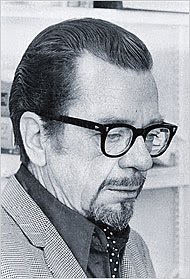A Quote by John Locke
Curiosity in children ... is but an appetite after knowledge and therefore ought to be encouraged in them, not only as a good sign, but as the great instrument nature has provided to remove that ignorance they were born with and which, without this busy inquisitiveness, will make them dull and useless creatures.
Related Quotes
I am convinced that it is impossible to expound the methods of induction in a sound manner, without resting them upon the theory of probability. Perfect knowledge alone can give certainty, and in nature perfect knowledge would be infinite knowledge, which is clearly beyond our capacities. We have, therefore, to content ourselves with partial knowledge - knowledge mingled with ignorance, producing doubt.
If we go back to the beginning, we shall find that ignorance and fear created the gods; that fancy, enthusiasm, or deceit adorned them; that weakness worships them; that credulity preserves them and that custom, respect and tyranny support them in order to make the blindness of men serve their own interests. If the ignorance of nature gave birth to gods, the knowledge of nature is calculated to destroy them.
First, by the figurations of art there be made instruments of navigation without men to row them, as great ships to brooke the sea, only with one man to steer them, and they shall sail far more swiftly than if they were full of men; also chariots that shall move with unspeakable force without any living creature to stir them. Likewise an instrument may be made to fly withall if one sits in the midst of the instrument, and do turn an engine, by which the wings, being artificially composed, may beat the air after the manner of a flying bird.
Immortality is what nature possesses without effort and without anybody's assistance, and immortality is what the mortals must therefore try to achieve if they want to live up to the world into which they were born, to live up to the things which surround them and to whose company they are admitted for a short while.
Yes, you will. And I will warn you now that not their blood but your suspicion might build evil in them. They will be what you expect of them…I think when a man finds good or bad in his children he is seeing only what he planted in them after they cleared the womb." "You can’t make a race horse of a pig." "No," said Samuel, "but you can make a very fast pig.
It seems to me that the moralist is the most useless and contemptible of creatures. He is useless in that he would expend his energies upon making judgments rather than upon gaining knowledge, for the reason that judgment is easy and knowledge is difficult. He is contemptible in that his judgments reflect a vision of himself which in his ignorance and pride he would impose upon the world. I implore you, do not become a moralist; you will destroy your art and your mind.
I happen to be a kind of monkey. I have a monkeylike curiosity that makes me want to feel, smell, and taste things which arouse my curiosity, then to take them apart. It was born in me. Not everybody is like that, but a scientific researchist should be. Any fool can show me an experiment is useless. I want a man who will try it and get something out of it.
There is no supernatural, there is only nature. Nature alone exists and contains all. All is. There is the part of nature that we perceive, and the part of nature that we do not perceive. ... If you abandon these facts, beware; charlatans will light upon them, also the imbecile. There is no mean: science, or ignorance. If science does not want these facts, ignorance will take them up. You have refused to enlarge human intelligence, you augment human stupidity. When Laplace withdraws Cagliostro appears.
Tis impossible to judge with much Præcision of the true Motives and Qualities of human Actions, or of the Propriety of Rules contrived to govern them, without considering with like Attention, all the Passions, Appetites, Affections in Nature from which they flow. An intimate Knowledge therefore of the intellectual and moral World is the sole foundation on which a stable structure of Knowledge can be erected.
The true end of education is not only to make the young learned, but to make them love learning; not only to make them industrious, but to make them love industry; not only to make them virtuous, but to make them love virtue; not only to make them just, but to make them hunger and thirst after justice.







































